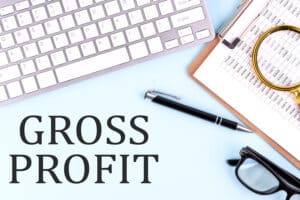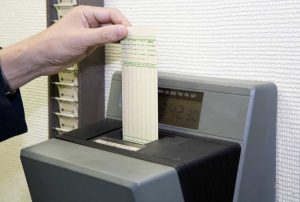Small business owners can avoid frequent inventory counts and save time by using the gross profit method to estimate inventory. The gross profit method is the easiest inventory estimation technique wherein the company uses historical gross profit rates to determine cost of goods sold (COGS) and estimate ending inventory. By assuming a constant gross profit…
What is
What Is Certified Payroll & How to Comply
Learn everything you need to know about certified payroll, from how it works to what state and federal laws regulate it.
Certified payroll is a weekly payroll report required by the US Department of Labor (DOL) for government contractors on federally funded projects with a contract value of over $2,000. The payroll report details employee wages, benefits, hours worked, and the type of work performed. To comply with certified payroll, government contractors must submit Form WH-347…
Employer of Record: What a Small Business Should Know
An employer of record (EOR) is an organization that takes financial and legal responsibility for your small business’s international employees by employing them directly, enabling you to work with overseas employees without opening a legal entity in that country. It handles onboarding, payroll, benefits administration, unemployment and workers’ compensation claims, and taxes and does not…
What Is a Line Sheet: Small Business Guide (+ Free Template)
Line sheets are industry-standard product sales tools retailers, manufacturers, and wholesalers use to display complete product information to potential buyers and retail partners. Unlike product catalogs and lookbooks, line sheets are simple visual documents often used in business-to-business (B2B) transactions that give potential buyers all the information they need to place their orders. They are…
What Is Buddy Punching & How Can You Prevent It?
Buddy punching is when an employee clocks in or out of an employer’s time-tracking system for a coworker. Essentially, it’s payroll fraud and costs employers millions of dollars each year. The employees are attempting to game the system by making it seem like one of them is working when they’re not, leading to the employer…
What Is a Virtual Phone Number? A Small Business Guide
A virtual phone number is a cloud-hosted phone number that lets you communicate seamlessly from anywhere using an internet-connected device. It isn’t tied to a fixed location, making it ideal for remote teams and those who want to have a familiar local area code. Pricing depends on the service provider, but it usually starts at…
What Is a Real Estate Professional for Tax Purposes?
To be treated as a real estate professional by the IRS, you must meet the following tests: Test 1: More than half (50%) of your personal services performed in all trades or businesses during the year are in real property trades or businesses wherein you materially participate. Test 2: Perform more than 750 hours of…
What Is an Early Payment Discount? A Small Business Guide
An early payment discount―also called a prompt payment or cash discount―is a reduction in an invoice balance when it’s paid before the due date. It provides an incentive for customers to pay their bills before they’re due. When used strategically, early payment discounts can speed up the bookkeeping process, increase customer loyalty, and improve cash…







